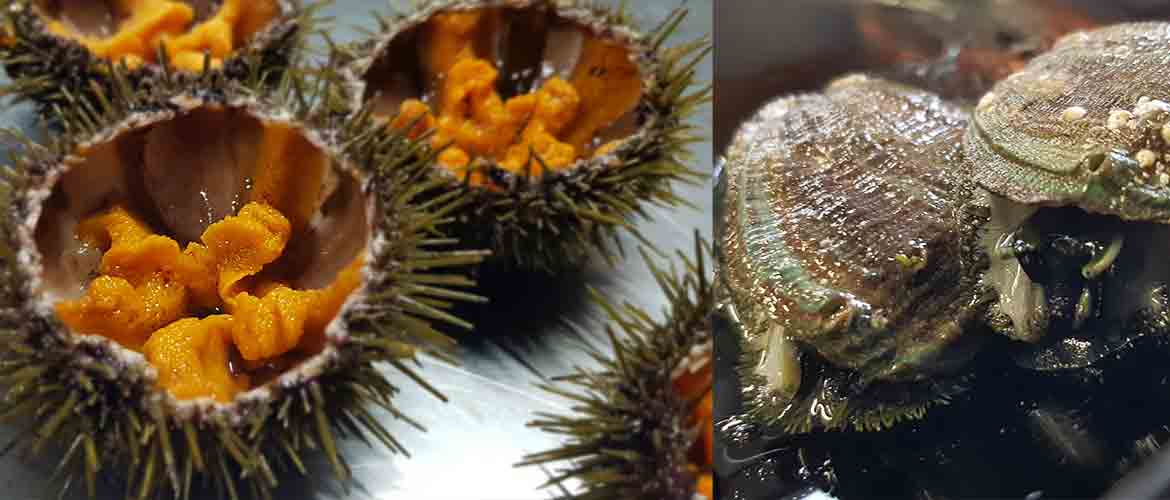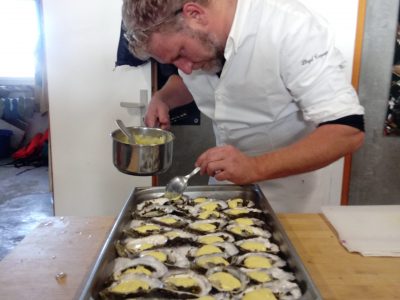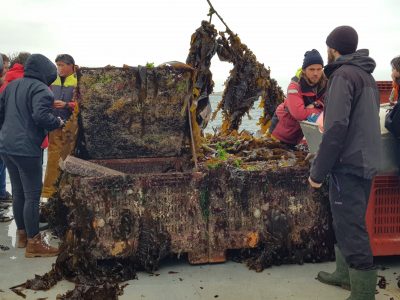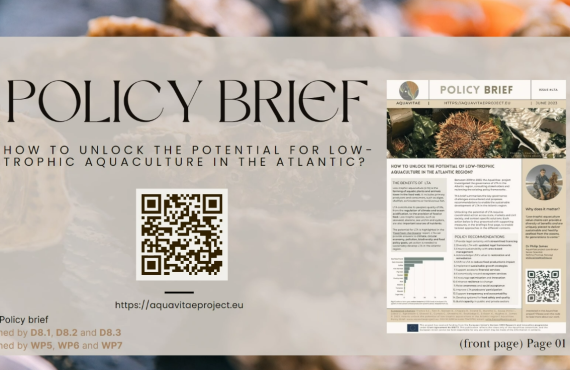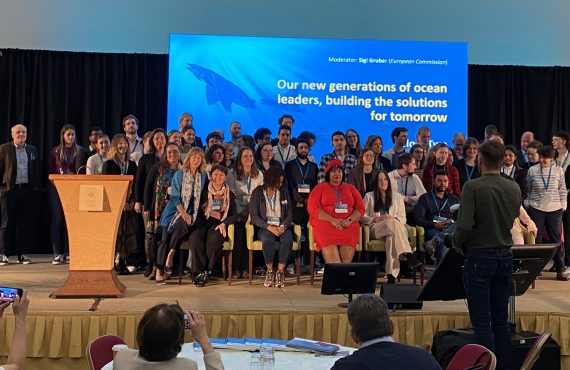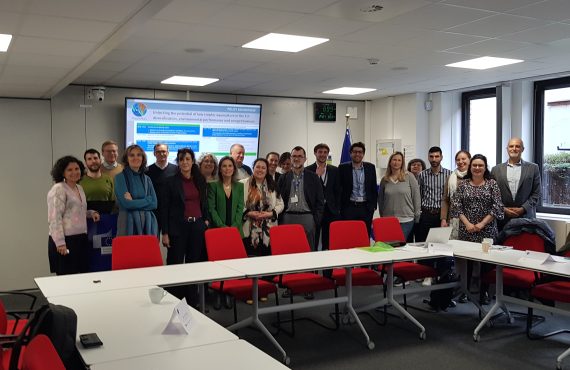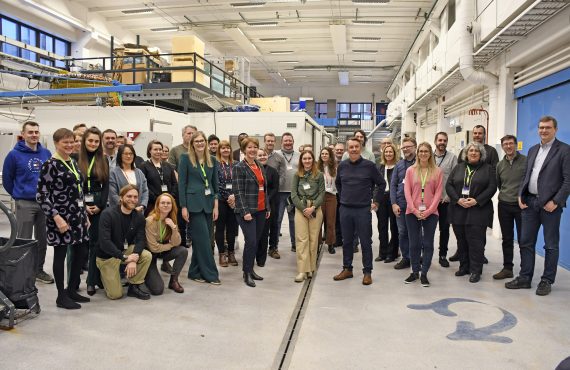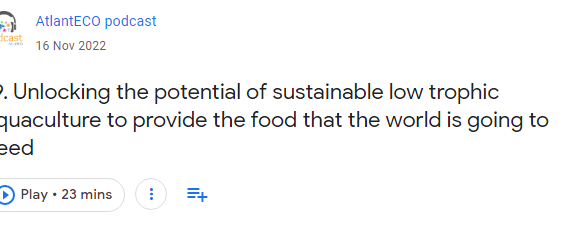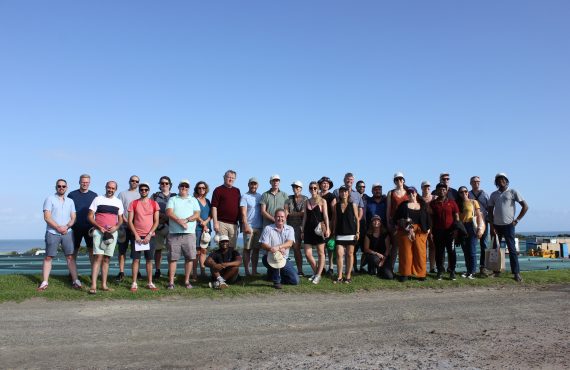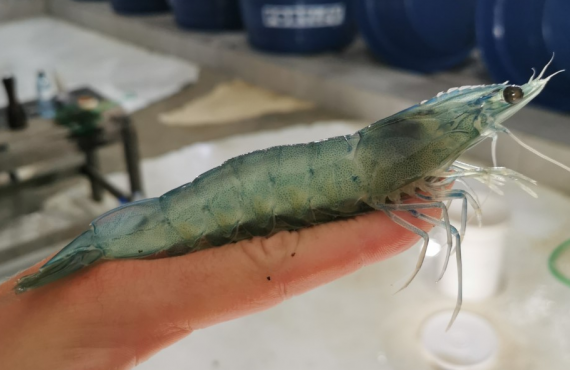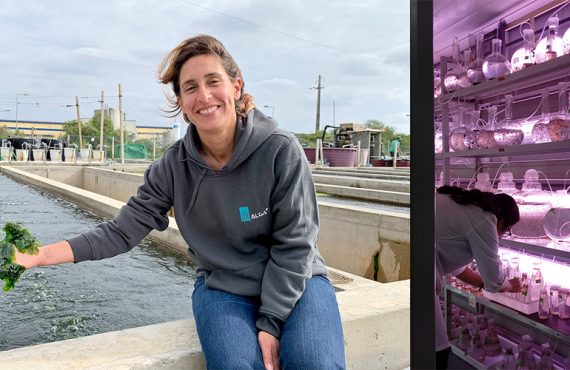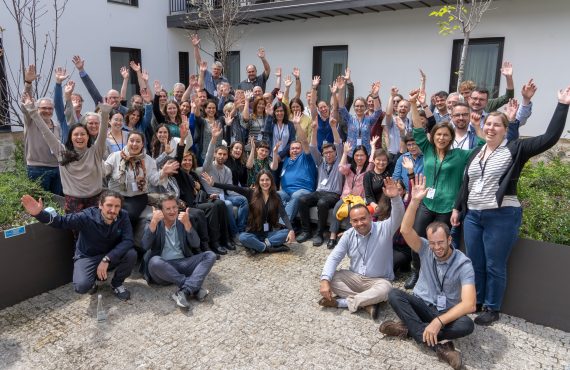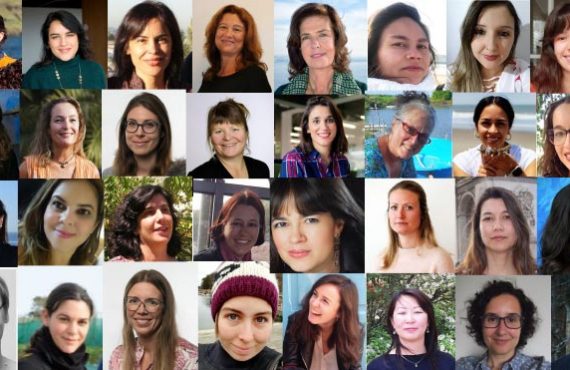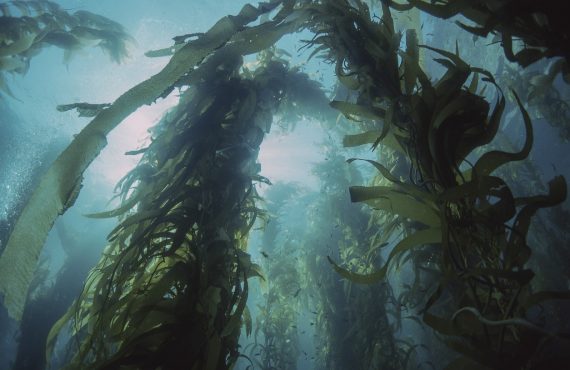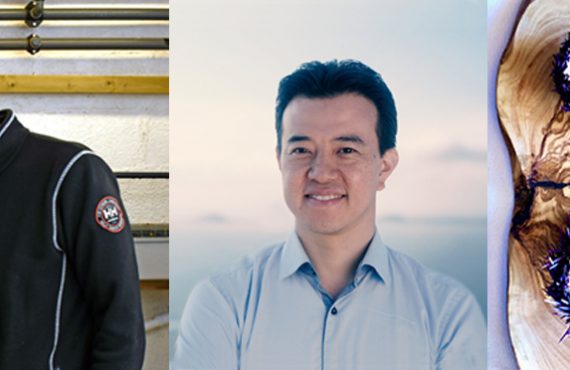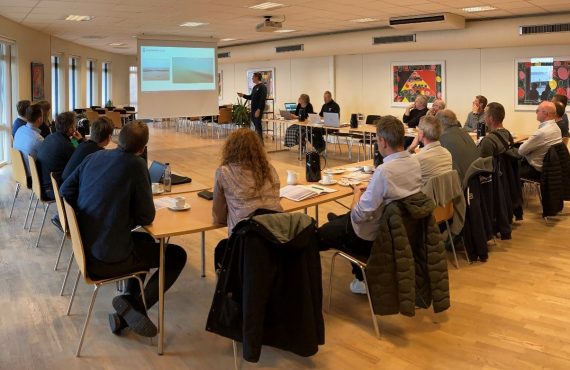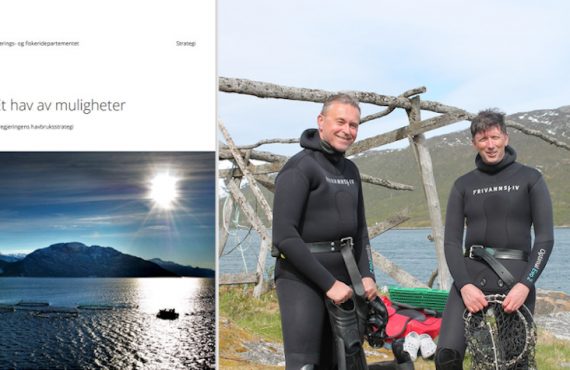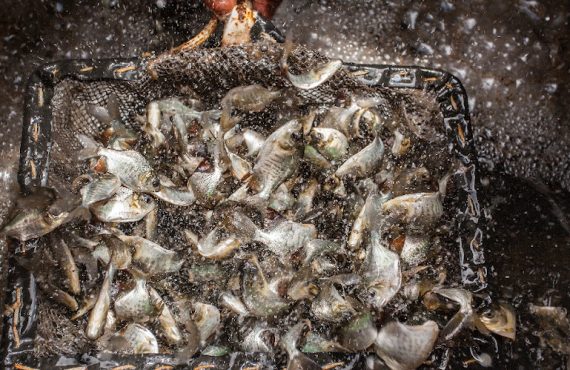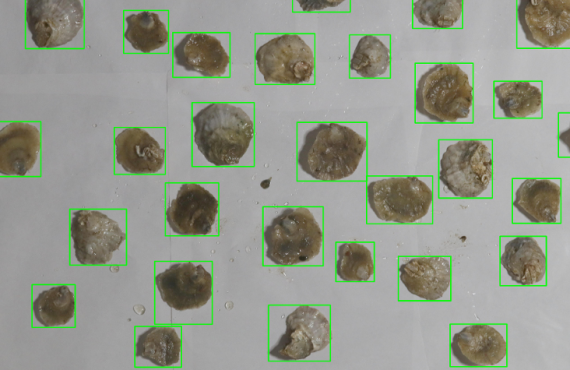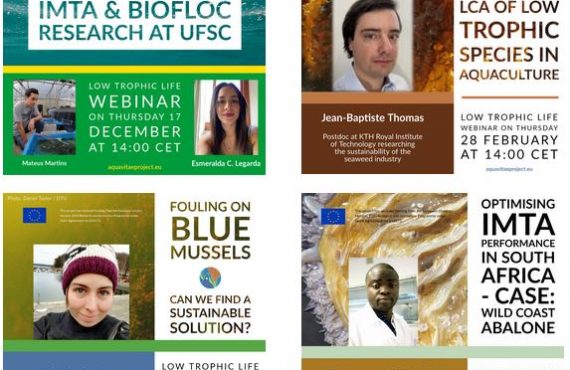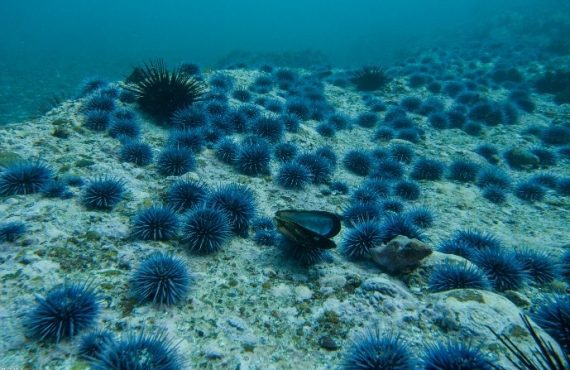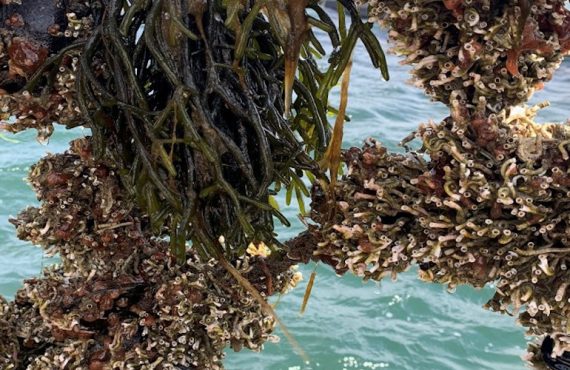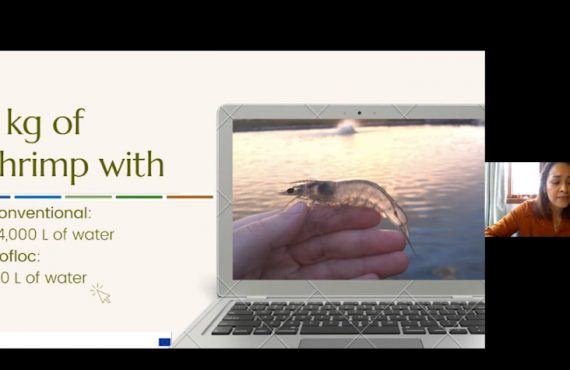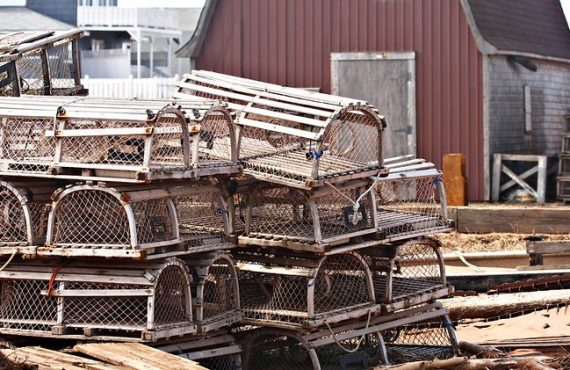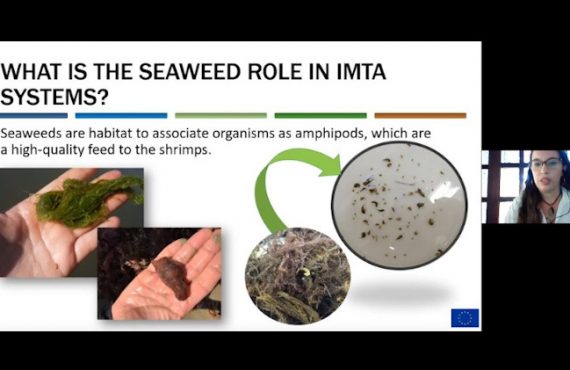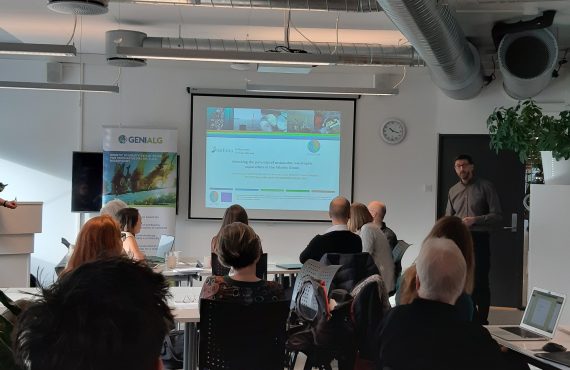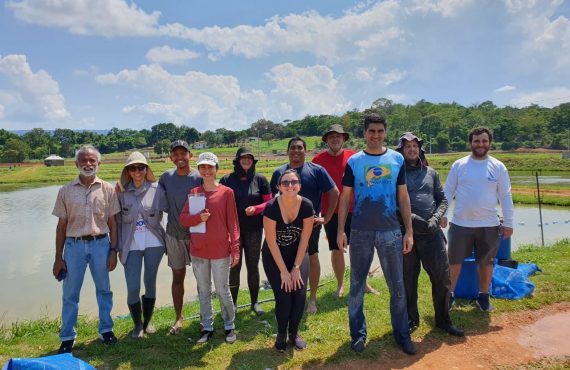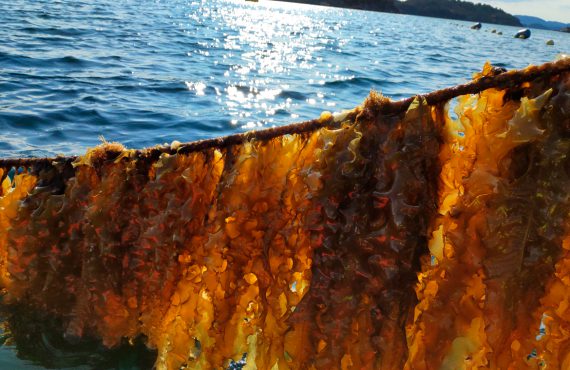Under the framework of the European AquaVitae project, France Haliotis organized along with the environmental organisation Ethic Ocean and Ineval project the Masterclass AquaVitae: cooking and tasting of sustainable aquaculture products on October 10th. The event took place at France Haliotis’ farm in Plouguerneau, a village in the North of Brest, France.
This day brought together various partners of the AquaVitae and InEVal projects (producers, scientists and chefs from Germany, Ireland, Norway…) as well as chefs and restaurant owners involved with Ethic Ocean, members of the Equipage de la mer (chefs who participated in the Olivier Roellinger European competition) and students from the Ifac professional cooking school in Brest.
Low trophic species from the Atlantic area (algae, sea urchins, oysters, mussels, sea cucumber or abalone) were highlighted by chefs during cooking and tasting workshops, demonstrating participants nice recipes with great flavours. France Haliotis and Ethic Ocean invited the chefs in order to encourage professionals to integrate low trophic species into their menus. They believe that the more visible these products are in the restaurants the more likely their consumption will be in the society. The tasting included the mentioned species that were either cooked or raw.
Manon Fouchard & Fabien Auffret (La Méditerranée, Paris) made an oyster with floral vinaigrette & a roast abalone in mackerel soup.
Nicolas Mengin and Lloyd Tropeano from La Guinguette in Isle-sur-la-Sorgue prepared a tasty Oyster tartar with algae vinaigrette.
The participants could also try sea urchins coming from Norway. “They are sweeter than the ones in the Mediterranean Sea”, ensured the chef Léa Combelonge. Indeed, the flavour varies depending on the waters they grow in. Algae dishes were a success as well as the different recipes created with abalone, a species that was a nice surprise for everybody.
The international exchange (there were people from Ireland, Germany, Norway, Greece and of course France) was very fruitful creating synergies among scientists, industry, gastronomy professionals and environmental organizations: “It was a very rewarding event where we could spend some time with researchers and passionate producers getting to know more about the abalone aquaculture and other species”, says Nicolas Cheronnet, chef and teacher at Ferrandi, Paris.
These chefs are used to work with some of these species from the low trophic level. They love their taste and they are aware about their versatility in the kitchen. However, they did not know the benefits of its culture: food from low trophic levels is produced using less energy resulting in a lower carbon footprint.
Besides the masterclass, the group had the chance to visit the sea-based platform where France Haliotis cultures algae and abalone in an IMTA (Integrated Multitrophic Aquaculture) system. France Haliotis integrates different species of algae (Sacharina latissima and Alaria) and abalone in the same farming space. Abalone cages act as artificial reefs and also welcome crabs and shrimps becoming a small ecosystem where different species live feeding on one another and, as a result, they grow up in an efficient and sustainable way. The visit continued in the land-based facilities where Sylvain Huchette, who runs the grow-out company, explained how the juvenile abalone is cultivated with the macroalgae Ulvella lens.
Then Élisabeth Vallet and Flore Berqué presented Ethic Ocean, a French organization aiming at the preservation of the ocean promoting good practices to conserve the sea and its resources. They left the floor to Björn Suckow (AWI) and Gercende Courtois (University of Las Palmas de Gran Canaria), AquaVitae partners, who talked about the chain pyramid and the low trophic species. Algae, sea urchins, oysters, mussels, sea cucumber or abalone aquaculture is more sustainable because it barely creates an impact on the environment.
At the end all of them, researchers, chefs and environmental organization, are looking at a blue transformation, searching a way to feed the world in a more sustainable way without depleting our ocean.



